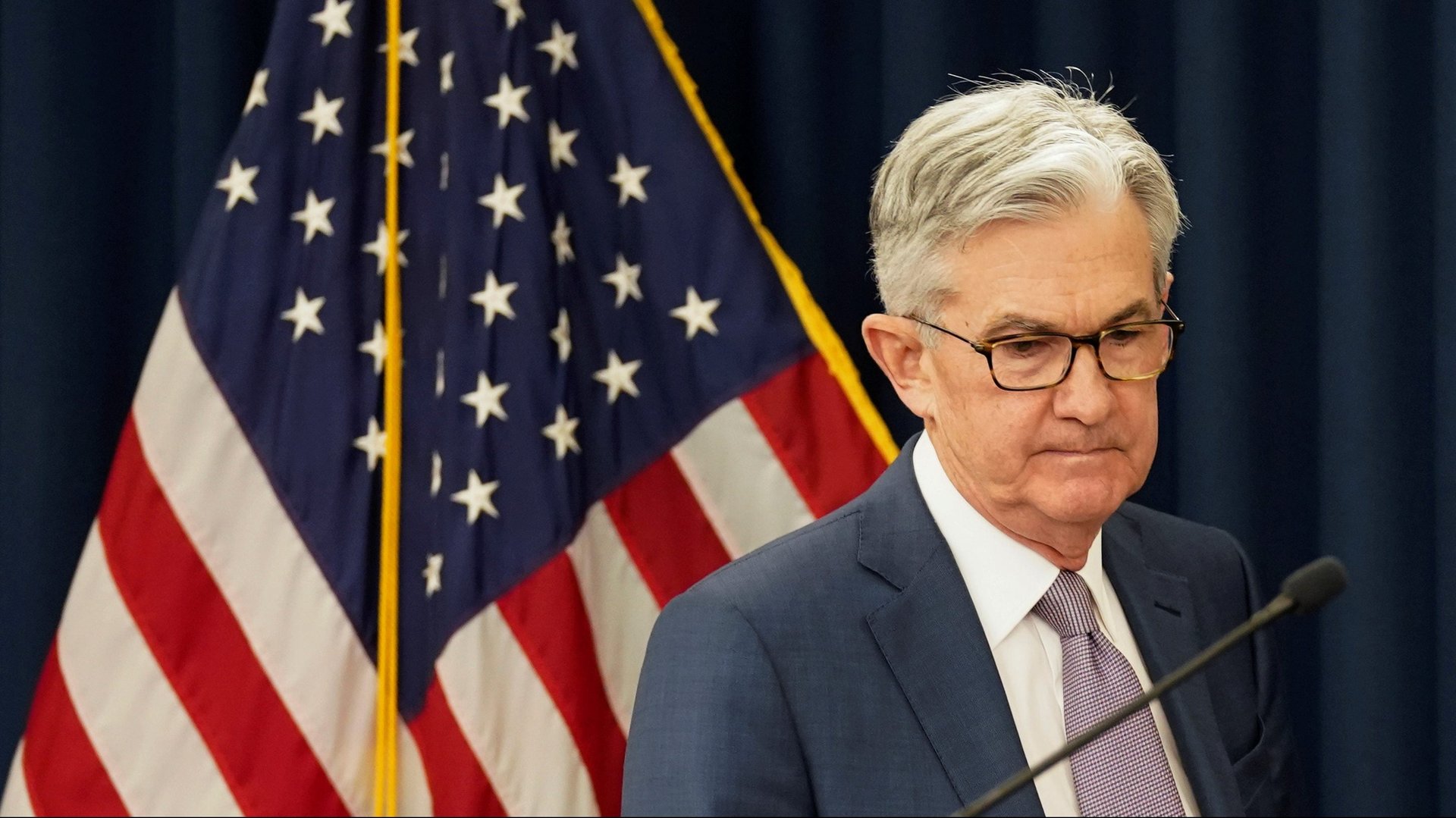Here’s what the Fed’s bazooka can—and can’t—do
The US Federal Reserve knows its “bazooka” doesn’t work on everything. But it might be able to buy some time as measures to contain the spread of coronavirus are implemented.


The US Federal Reserve knows its “bazooka” doesn’t work on everything. But it might be able to buy some time as measures to contain the spread of coronavirus are implemented.
Last night, Fed Chair Jerome Powell pulled out the central bank’s big guns as parts of the economy grind nearly to a halt. The Fed cut its target rate to close to zero, and it launched a series of other aggressive measures—like urging banks to lend to crisis-hit customers and buying up $700 billion worth of assets—to bolster the American economy.
Before coronavirus, interest rates were already low by historical standards. And while the Fed “invented a new bazooka,” elected officials will have to prepare bailouts and get cash into peoples’ hands to prevent a recession from getting even deeper, wrote Diane Swonk, chief economist at Grant Thornton.
Health authorities and government spending, Powell said in a press conference, are far more instrumental than the central bank in helping society get through the turmoil. As governments race to contain the spread of spread of Covid-19, economic activity is being disrupted by everything from restaurant closures to sealed off borders between countries.
“We are talking about major disruptions to our everyday activity,” Yale economist Robert Shiller told Quartz last week. People are “pulling back. They’re not going out, they’re trying to avoid contagion. That creates anxieties and it also creates real income falls for many people and for companies.”
But the Fed and the US banking sector may be able to buy some time as other, hopefully, potent, measures take hold. One way the central bank is doing that is by pushing banks to help customers who have been hit by the coronavirus shock. Lenders have been fortified since the crisis in 2008 with large capital reserves, and the Fed has given them the green light to use that ammunition to support their clients.
Banks can avoid exacerbating the crisis by, for example, helping otherwise sound companies to refinance and avoid defaults that would further stall the economy and drive up unemployment. As the crisis intensifies, the biggest US lenders said they will stop buying back their own stock in order to support their customers during the pandemic.
“In a different situation, it would be prudent to stop lending to such firms,” said Francesc Rodriguez Tous, a finance professor at Cass Business School in London. “But because this is an external shock that is likely to be temporary, and to avoid a spread of defaults, it seems optimal to have banks continuing lending to these firms.”
The Fed’s chief also thinks the central bank can fix a dangerous plumbing problem. The US Treasury market, the world’s risk-free asset that underpins interest rates for more than $50 trillion of global assets, has been malfunctioning as market pandemonium builds. The market for mortgage-backed securities, the bedrock for financing the American housing market, has also been under severe strain.
Wall Street intermediaries have been unable to contain the stress amid massive buying and selling. As pressure builds, yesterday the central bank said that it would buy at least $500 billion of Treasuries and at least $200 billion agency mortgage-backed securities in the coming months.
As the Fed tries to prevent a credit seizure, defaults could still be difficult to mitigate, especially among highly indebted oil drillers. The Federal Open Market Committee acknowledged that the “energy sector has come under stress” as crude prices tank.
In the meantime, regulators have spent years making sure the US banking sector is sound—an effort that could pay off now that the system is under duress. Overall, the Fed thinks its collection of measures can stave off a credit crunch that would make the economic fallout from Covid-19 even worse.
“They can fix plumbing but can’t fix the fact that staying home means spending less and for many working less,” Kit Juckes of Societe Generale wrote in an email. “The airline/retail/sport/dining/entertainment disaster can only be offset with fiscal measures. But they can try and avoid defaults, cash crunches.”